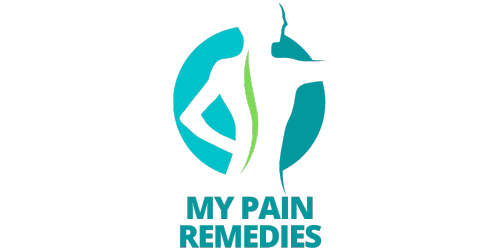Are you tired of dealing with muscle tension and soreness? If so, you’ll be glad to know that there are natural alternatives to prescription muscle relaxants that can provide relief. In this article, we will explore some of the best natural muscle relaxants available. Whether it’s through herbal remedies, essential oils, or simple lifestyle adjustments, you’ll discover safe and effective ways to ease your muscle tension and promote relaxation. So say goodbye to discomfort and hello to a more peaceful and rejuvenated you!

Overview of Muscle Relaxants
Muscle relaxants are commonly used to alleviate muscle tension, spasms, and discomfort. While there are various types of muscle relaxants available, including prescription medications, this article will focus on natural alternatives that can provide relief without the potential side effects associated with synthetic drugs. Natural muscle relaxants are derived from plants, herbs, essential oils, supplements, and even everyday foods.
Understanding Muscle Relaxants
Muscle relaxants work by targeting the central nervous system to reduce the transmission of pain signals and induce relaxation in the muscles. They can be used to treat conditions such as muscle strains, sprains, fibromyalgia, and chronic pain. Natural muscle relaxants offer a holistic approach to treating muscle-related issues, promoting overall well-being and minimizing the risk of adverse reactions.
Types of Muscle Relaxants
There are several categories of natural muscle relaxants, each with their unique benefits and mechanisms of action. These include herbal remedies, essential oils, supplements, home remedies, muscle relaxant drinks, and foods. Understanding the different options available can help you determine which approach is best suited for your needs.
Natural Muscle Relaxants
Benefits of Natural Muscle Relaxants
Natural muscle relaxants have gained popularity due to their numerous benefits. One primary advantage is their ability to provide relief without the side effects commonly associated with synthetic medications. Moreover, they often have additional health benefits, such as promoting relaxation, reducing stress, and supporting overall physical and mental well-being.
Furthermore, natural muscle relaxants are typically more readily available, cost-effective, and can be used alongside other treatments, making them a versatile and accessible option for individuals seeking natural remedies.
Factors to Consider Before Using Natural Muscle Relaxants
It is essential to consider certain factors before incorporating natural muscle relaxants into your routine. First, consult with your healthcare professional to ensure they are safe and suitable for your specific condition or situation. This is particularly crucial if you have any underlying health conditions, are pregnant, or currently taking any medications.
Furthermore, it is important to remember that natural remedies may not provide immediate or complete relief. They may require consistent use over time to experience their full benefits. Patience, consistency, and a holistic approach to wellness are essential when using natural muscle relaxants.
Herbal Muscle Relaxants
Valerian Root
Valerian root is a popular herbal muscle relaxant known for its sedative properties. It has been used for centuries to promote relaxation and relieve muscle tension. Valerian root works by increasing the production of gamma-aminobutyric acid (GABA), a neurotransmitter that helps regulate nerve impulses and promote calmness.
Kava Root
Kava root is another herbal muscle relaxant that has been used in traditional medicine for its calming effects. It can help reduce anxiety, relax muscles, and promote deeper sleep. However, it is essential to note that kava root should be used cautiously and under the guidance of a healthcare professional, as excessive consumption or long-term use has been associated with liver problems.
Chamomile
Chamomile is a widely recognized herbal remedy known for its calming and anti-inflammatory properties. It can help relax muscles, reduce tension, and promote restful sleep. Chamomile can be consumed as a tea or applied topically in the form of infused oils or creams for localized muscle relaxation.
Passionflower
Passionflower is a herb that has been used for centuries to promote relaxation and reduce anxiety. It can help alleviate muscle tension, calm the mind, and improve sleep quality. Passionflower can be consumed as a tea, taken in the form of supplements, or applied topically in the form of creams or ointments.
White Willow Bark
White willow bark contains a compound called salicin, which has natural pain-relieving and anti-inflammatory properties. It can help reduce muscle soreness, stiffness, and discomfort. White willow bark can be consumed as a tea or taken in the form of supplements.
Essential Oils as Muscle Relaxants
Lavender Oil
Lavender oil is one of the most widely used essential oils for relaxation and muscle tension relief. Its calming aroma and anti-inflammatory properties make it an effective muscle relaxant. Lavender oil can be used in massage oils, added to bathwater, or diffused in the air to promote relaxation.
Peppermint Oil
Peppermint oil is known for its cooling sensation and ability to alleviate muscle aches and pains. Its analgesic properties help relieve sore muscles, tension headaches, and even menstrual cramps. Peppermint oil can be applied topically in a carrier oil or used in aromatherapy.
Eucalyptus Oil
Eucalyptus oil has a refreshing scent and is often used to relieve muscle soreness and inflammation. Its analgesic and anti-inflammatory properties can help reduce discomfort and promote better blood circulation. Eucalyptus oil can be applied topically or used in steam inhalation for muscle relaxation.
Rosemary Oil
Rosemary oil is known for its invigorating scent and its ability to reduce muscle pain and inflammation. It can help relieve muscle spasms, cramps, and stiffness. Rosemary oil can be applied topically, used in massage oils, or added to bathwater for a relaxing experience.
Ginger Oil
Ginger oil has warming properties that can help relax and soothe muscles. It is particularly effective in reducing muscle pain and inflammation associated with arthritis, sprains, and strains. Ginger oil can be diluted in a carrier oil and applied topically or used in aromatherapy.
Supplements for Muscle Relaxation
Magnesium
Magnesium is a mineral that plays a crucial role in muscle function and relaxation. It helps regulate calcium levels in the muscles and supports the nervous system. Adequate magnesium levels can help alleviate muscle spasms, cramps, and tension. Magnesium supplements can be taken orally or applied topically in the form of creams or oils.
Calcium
Calcium is another essential mineral for muscle function and relaxation. It works in conjunction with magnesium to regulate muscle contractions and promote relaxation. Consuming calcium-rich foods or taking calcium supplements can help maintain optimal muscle health.
Vitamin D
Vitamin D is vital for calcium absorption and utilization in the body. Adequate levels of vitamin D are essential for maintaining healthy muscles, preventing muscle weakness, and reducing the risk of muscle pain and spasms. Vitamin D can be obtained through sunlight exposure or dietary supplements.
B Vitamins
B vitamins, such as B6 and B12, play a role in promoting muscle health and relaxation. They help support the nervous system and regulate the production of neurotransmitters involved in muscle function. B vitamins can be obtained through a balanced diet or taken as supplements.
Home Remedies for Muscle Relaxation
Heat Therapy
Applying heat to sore or tense muscles can help promote circulation, relax the muscles, and alleviate discomfort. Heat therapy can be achieved through hot packs, warm baths, or warm compresses applied to the affected area.
Cold Therapy
Cold therapy, also known as cryotherapy, can help reduce inflammation and numb the area, providing temporary relief from muscle pain and swelling. Cold therapy can be achieved by applying ice packs, cold compresses, or even taking a cold shower.
Stretching and Exercise
Engaging in gentle stretching exercises and low-impact physical activities can help relieve muscle tension and promote relaxation. Stretching improves flexibility and blood flow to the muscles, reducing the risk of muscle cramps and promoting overall muscle health.
Hydration
Staying hydrated is essential for optimal muscle function and relaxation. Dehydration can lead to muscle cramps and spasms. Drinking an adequate amount of water and consuming hydrating foods can help prevent muscle-related issues.
Massage
Massage is a well-known technique for relaxing muscles and alleviating tension. Professional massages, self-massage, or using massage tools can help promote blood circulation, relieve muscle knots, and reduce pain and discomfort.
Natural Muscle Relaxant Drinks and Teas
Cherry Juice
Cherry juice is rich in antioxidants and contains compounds that can help reduce inflammation and muscle soreness. Drinking cherry juice before or after physical activity can aid in muscle recovery and relaxation.
Turmeric Tea
Turmeric contains a compound called curcumin, which has potent anti-inflammatory properties. Consuming turmeric tea, made by steeping turmeric powder in hot water, can help reduce muscle pain and swelling.
Green Tea
Green tea is a natural muscle relaxant that contains antioxidants and anti-inflammatory compounds. It can help reduce muscle soreness, speed up recovery, and promote relaxation. Green tea can be consumed hot or cold for maximum benefits.
Ginger-infused Water
Ginger-infused water, made by steeping fresh ginger slices in water, is a natural way to relieve muscle pain and inflammation. Ginger has analgesic and anti-inflammatory properties that can help relax the muscles and reduce discomfort.
Foods for Muscle Relaxation
Bananas
Bananas are a good source of potassium, magnesium, and B vitamins, all essential for muscle relaxation and function. Eating bananas can help prevent muscle cramps and promote overall muscle health.
Oats
Oats are rich in magnesium, which helps relax the muscles, regulate nerve function, and reduce muscle spasms. Consuming oats can also provide sustained energy, making them an excellent choice for pre- or post-workout meals.
Salmon
Salmon is a fatty fish that contains omega-3 fatty acids, which have anti-inflammatory properties. Omega-3s can help reduce muscle inflammation, alleviate soreness, and promote muscle recovery.
Spinach
Spinach is a leafy green vegetable rich in magnesium, calcium, and potassium. These minerals work together to relax muscles, regulate nerve impulses, and reduce muscle cramps. Including spinach in your diet can support overall muscle health.
Almonds
Almonds are a great source of magnesium and protein, both essential for muscle relaxation and repair. Snacking on almonds can provide a healthy dose of nutrients to keep your muscles in top shape.
Precautions and Side Effects
Consulting a Healthcare Professional
Before trying any natural muscle relaxants, it is crucial to consult with a healthcare professional, especially if you have any underlying health conditions or are taking medications. They can provide guidance on the suitability and dosage of specific remedies based on your individual needs.
Potential Side Effects
While natural muscle relaxants are generally safe, they may still cause side effects in some individuals. These can include drowsiness, gastrointestinal discomfort, allergic reactions, or interactions with medications. Monitoring your body’s response and adjusting the dosage accordingly can help minimize these potential side effects.
Allergic Reactions
Some individuals may be allergic to certain herbs, essential oils, or ingredients found in natural remedies. It is important to be aware of any allergies or sensitivities you may have and carefully read labels or consult with a healthcare professional to avoid adverse reactions.
Conclusion
Discovering the right muscle relaxant for your needs requires considering various factors, including your specific condition, preferences, and potential allergies or contraindications. Natural muscle relaxants offer a holistic approach to relaxation and pain relief, utilizing the power of plants, herbs, essential oils, supplements, home remedies, and even everyday foods.
By incorporating natural muscle relaxants into your daily routine, you can achieve natural muscle relaxation, promote overall well-being, and reduce the risk of adverse reactions associated with synthetic medications. Remember to consult with a healthcare professional before trying any new remedies and listen to your body’s response to find the best approach for you. With patience, consistency, and a holistic mindset, you can find relief and enjoy the benefits of natural muscle relaxation.


